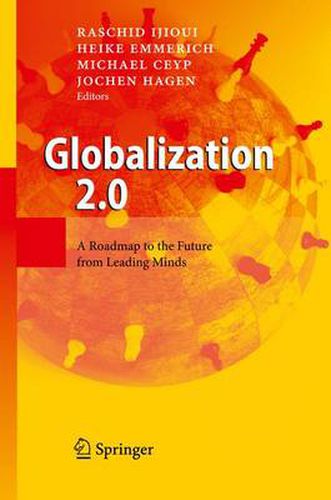Readings Newsletter
Become a Readings Member to make your shopping experience even easier.
Sign in or sign up for free!
You’re not far away from qualifying for FREE standard shipping within Australia
You’ve qualified for FREE standard shipping within Australia
The cart is loading…






This title is printed to order. This book may have been self-published. If so, we cannot guarantee the quality of the content. In the main most books will have gone through the editing process however some may not. We therefore suggest that you be aware of this before ordering this book. If in doubt check either the author or publisher’s details as we are unable to accept any returns unless they are faulty. Please contact us if you have any questions.
… Eat not up your property among yourselves unjustly except it be a trade amongst you, by mutual consent … and help you one another in righteousness and piety… (Al-Hadid 4:29; Al-Ma'idah 5:2) There cannot be any doubt that the current ?nancial crisis, which began in the US, has gone global. This realization has fuelled the ?re of debate over globalization. Today’s globalization is no longer the globalization that Theodore Levitt, a former professor at the Harvard Business School, described in 1983 in his world famous article “The Globalization of Markets. ” Although, in old days, Levitt and his successors had not seen globalization as an utopian state free of problems, no- days globalization has been reshaped completely. Therefore, in the perception of the editors it is justi?ed to use the phrase “Globalisation 2. 0” for the range of effects interpenetrating global economic arrangements. Globalisation 1. 0 will never be restored again. Since the subprime crisis made its way to the global arena in the year 2008, companies and managers are confronted with the breathtaking speed of global, regional, and local changes. It is more than a provocation to divide dev- opments into cause and effects. Forecasts in strategic management are no longer valid even for the moment they are published. Uncertainty occupies the driving seats in global, regional, and local oriented companies.
$9.00 standard shipping within Australia
FREE standard shipping within Australia for orders over $100.00
Express & International shipping calculated at checkout
This title is printed to order. This book may have been self-published. If so, we cannot guarantee the quality of the content. In the main most books will have gone through the editing process however some may not. We therefore suggest that you be aware of this before ordering this book. If in doubt check either the author or publisher’s details as we are unable to accept any returns unless they are faulty. Please contact us if you have any questions.
… Eat not up your property among yourselves unjustly except it be a trade amongst you, by mutual consent … and help you one another in righteousness and piety… (Al-Hadid 4:29; Al-Ma'idah 5:2) There cannot be any doubt that the current ?nancial crisis, which began in the US, has gone global. This realization has fuelled the ?re of debate over globalization. Today’s globalization is no longer the globalization that Theodore Levitt, a former professor at the Harvard Business School, described in 1983 in his world famous article “The Globalization of Markets. ” Although, in old days, Levitt and his successors had not seen globalization as an utopian state free of problems, no- days globalization has been reshaped completely. Therefore, in the perception of the editors it is justi?ed to use the phrase “Globalisation 2. 0” for the range of effects interpenetrating global economic arrangements. Globalisation 1. 0 will never be restored again. Since the subprime crisis made its way to the global arena in the year 2008, companies and managers are confronted with the breathtaking speed of global, regional, and local changes. It is more than a provocation to divide dev- opments into cause and effects. Forecasts in strategic management are no longer valid even for the moment they are published. Uncertainty occupies the driving seats in global, regional, and local oriented companies.